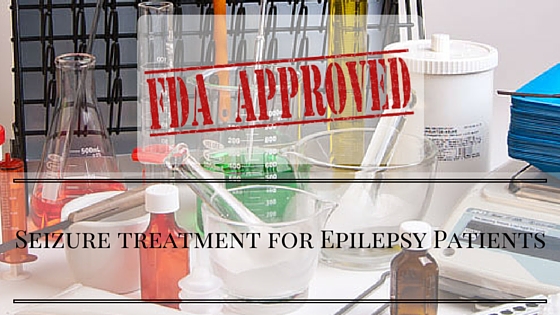New FDA Approved Seizure treatment for Epilepsy Patients
Posted by Emily Thompson on Sep 1st 2020

The U.S. Food and Drug Administration have given approval for the seizure treatment drug brivaracetam (Briviact), which was developed and tested by UCB, Inc. It has been approved for partial onset seizures (POS) and is to be used as an adjunctive medication for patients who are 16 and older.
The medication has been approved as a seizure treatment based on the data from three late-stage trials involving 1,550 people who were between the ages of 16 and 80. The trials were performed at 206 sites in North and South America, Asia, and Europe.
One of the tests involved 768 people who were divided into three different groups. All of them had drug-resistant POS. One group was given a placebo, another group was given 100 mg/day brivaracetam, and the third group was given 200 mg/day of brivaracetam.
At the conclusion of the 28-day test, it was calculated that the 100 mg group had an average reduction in POS frequency of 37.2% over the placebo group, and the 200 mg/day group had an average of 35.6% over the placebo group.
A longer lasting effect was also noticed over the 12-week period of treatment. Participants were seizure free at the following rates: 0.8% of those taking the placebo; 5.2% taking the 100 mg/day, and 4.0% of those who took the 200 mg/day.
The clinical trials revealed that participants tolerated the drug well, with only a few subjects discontinuing the product. As with other epilepsy medications, the most common side effects were drowsiness, fatigue, nausea, vomiting, and dizziness. Approximately 5% of people may experience these symptoms.
Other more serious side effects could include thoughts of suicide and attempts to commit suicide, depression, aggression, panic attacks, and agitation. In the tests, about 13% experienced these problems when taking 50 mg/day or more. Patients should be monitored for changes in mood, depression that worsens, suicidal thoughts, and possible self-harm.
A few participants experienced swelling of their lips, tongue or eyelids, and some of them had difficulty breathing. Some also reported that they had a disturbance in their gait and coordination.
The value of this new drug can be seen when the CDC says that as many as 4.3 million adults (18+) and 750,000 children (0-17) have seizures sometime in their lifetime. Almost 3 million people, however, have active epilepsy. These numbers are based on the 2013 population of the U.S.
Brivaracetam is a high-affinity synaptic vesicle protein 2A ligand, and it is an analogue of another drug for epilepsy – levetiracetam. When it is used in conjunction with other epilepsy medications, it has reduced the frequency of seizures that the patient experienced.
Briviact will be officially classified by the Drug Enforcement Agency within 90 days. When it is released, it will be made available as an oral solution, a film-coated tablet, and as an injection.
